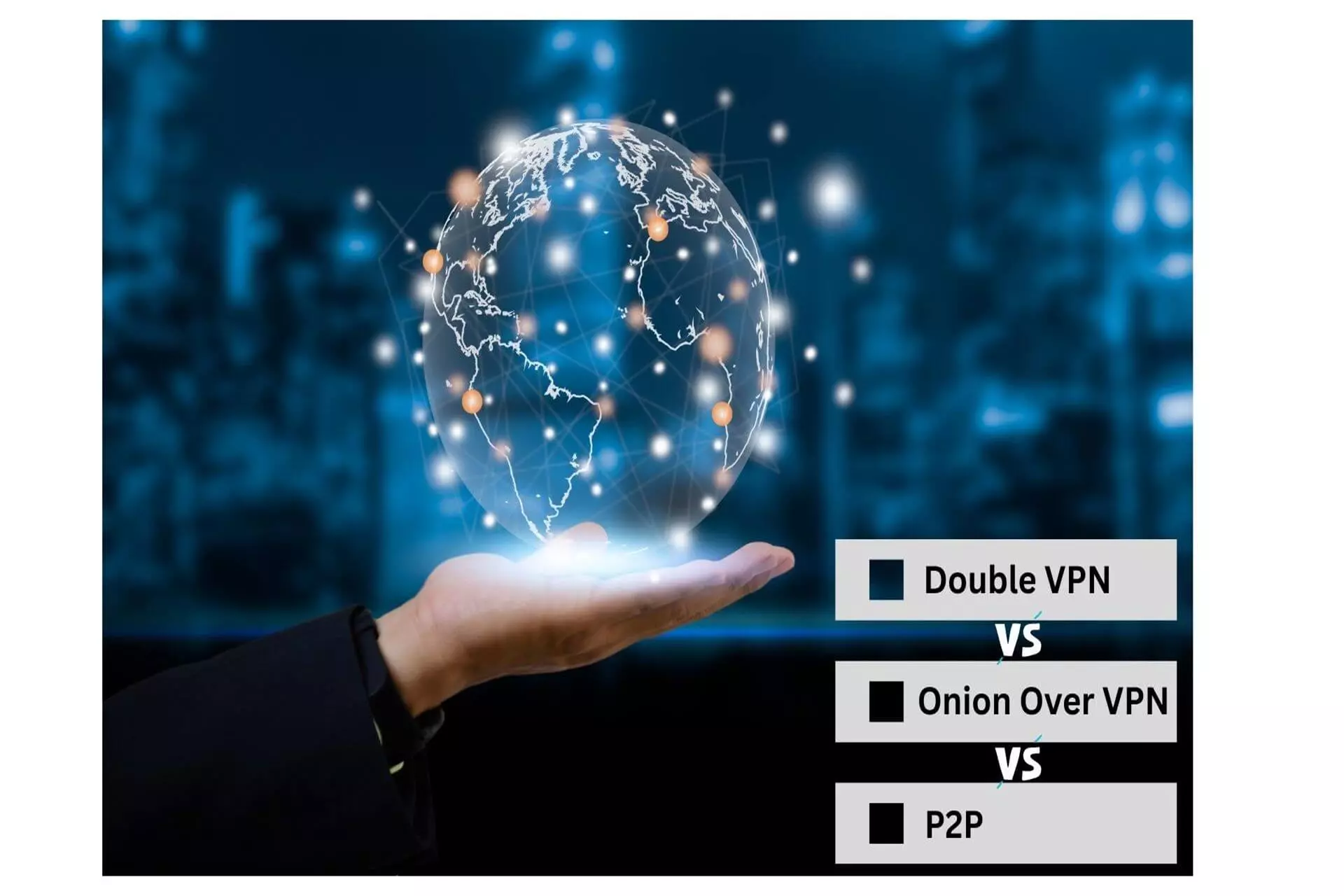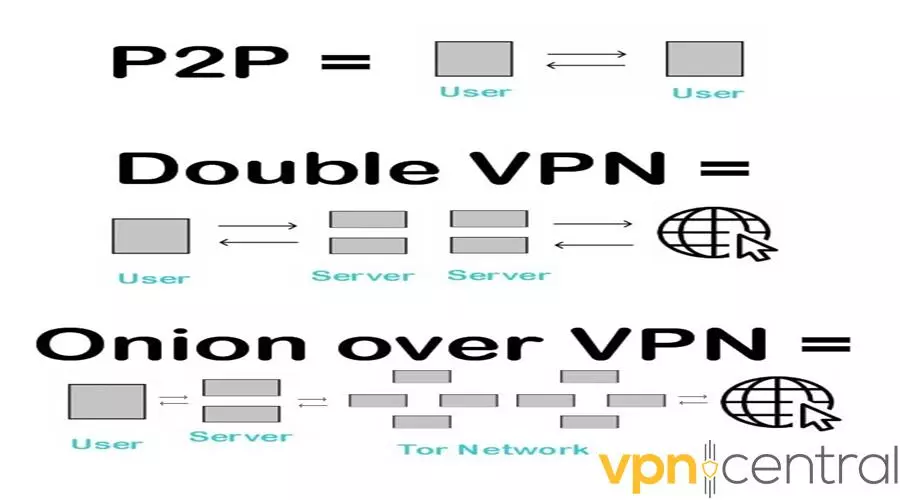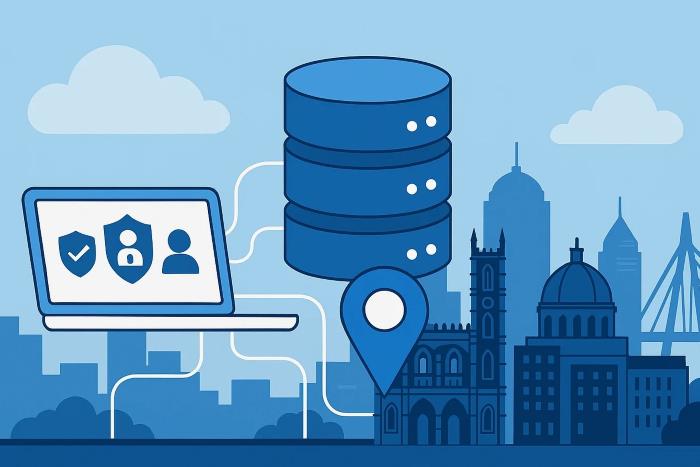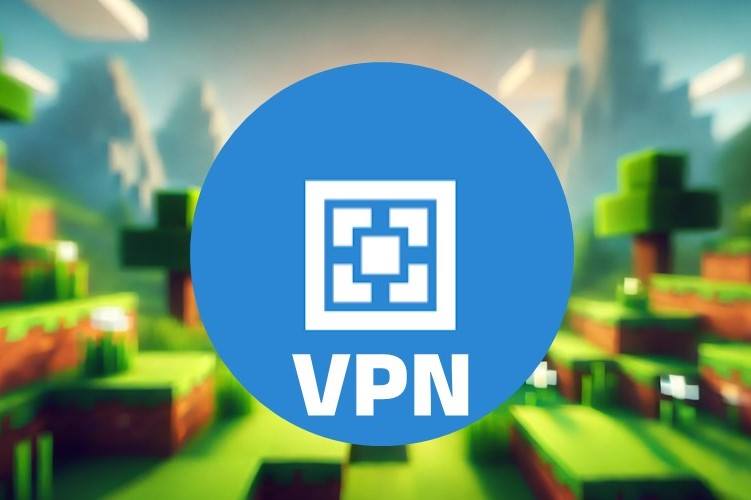Double VPN vs Onion Over VPN vs P2P [All You Need to Know]
5 min. read
Updated on
Read our disclosure page to find out how can you help VPNCentral sustain the editorial team Read more

When using a virtual private network (VPN) or exploring different modes of internet security, you may come across terms like Double VPN, Onion over VPN, and P2P.
Let’s look at the differences between these types of connections so you know what’s best for you.
Double VPN vs Onion over VPN vs P2P – What’s the Difference?
Before we dive into the specifics, let’s break down the basic differences between Double VPN, Onion over VPN, and P2P:
- Double VPN – An advanced VPN security feature that routes internet traffic through two VPN servers instead of one, encrypting your data twice.
- Onion Over VPN – A privacy solution where the internet traffic goes through a VPN server and then through The Onion Router (Tor) network.
- P2P – A direct connection between two or more peers without a central server. A VPN may be established first to mask the identity of a peer.

The image above illustrates the main Double VPN vs Onion over VPN vs P2P differences. But our comparison wouldn’t be complete without some details. So let’s explore how these solutions work and what are their pros and cons.
What Is a Double VPN and How Does It Work?
A double VPN connection is when a device connects to a VPN server that then connects to a second VPN server. This is often called multi-hop.
It creates an additional layer of encryption and anonymity. This is because all internet traffic is transmitted through two VPN servers before reaching its destination.
The main benefit of using a double VPN is increased security and privacy. Routing your traffic through two servers makes it much more difficult for anyone to intercept your data.
However, it is important to note that a double VPN may slow down your internet speed, as the data travels through two servers. That makes it ill-suited for gaming or streaming.
VPN providers often support double VPN within their apps.
What Is P2P and How Does It Work?
Many VPN providers support P2P (peer-to-peer) connections. I.e., you can connect to a P2P network securely after first connecting to the VPN or even a double VPN. Some also offer optimized servers specifically for P2P traffic.
This hides your IP from other peers and snoopers and can prevent your ISP from banning or throttling filesharing activities.
But what exactly is P2P?
A P2P connection is when two or more devices communicate directly with each other rather than through a central server. I.e., user-to-user, not user-to-website.
In a P2P network, each device acts as both a client and a server. This allows them to share resources and information without a central authority.
You can use P2P for communication and collaboration. These networks are also often used for file sharing. They allow users to download and upload files directly from other devices rather than going through a central server. BitTorrent is a common P2P protocol.
P2P can be more efficient and faster than traditional client-server networks. It allows users to download and upload directly from other devices rather than going through a central server.
Such connections can also be more resilient, as they continue to function even if one or more devices go offline. But there is no inherent security or privacy benefit to a P2P connection. It depends on the underlying software and function.
For example, a P2P messaging app might be more secure than a centralized app because no data is stored on a corporation’s servers.
However, in the context of a mass P2P file-sharing platform, all users can typically view each other’s IP addresses. Also, your ISP can recognize your P2P traffic.
What is Onion Over VPN and How Does It Work?
The Tor network is a network of decentralized servers that provides anonymity and privacy to Internet users. It routes the traffic through multiple nodes before reaching its final destination. This is called Onion routing.
Onion over VPN is the process of connecting to a VPN server first and then connecting to the Tor network via that server. This combines both methods of security.
In this case, even if the Tor user is identified, the encrypted VPN connection still protects them.
Because the ‘onion’ has multiple layers for data to travel through and is operated by volunteers, speed is significantly impacted. Therefore, it’s only recommended for those that need the highest level of anonymity.
Double VPN vs Onion over VPN vs P2P – Which One Is Better?
In conclusion, a double VPN is one step up from a standard VPN. It gives the user two layers of security with a modest speed impact. Use it if you want to prioritize privacy while performing regular tasks.
Onion over VPN takes this concept and multiplies it by the many nodes of the Tor network. This is the highest level of anonymity but with a considerable performance hit. Use this for absolute privacy or to get around the toughest restrictions.
Lastly, look for P2P servers or VPNs that offer a P2P feature if you are torrenting or using other file-sharing platforms or apps.
Hopefully, this Double VPN vs Onion over VPN vs P2P comparison has helped you understand the differences between them. Consider your needs and explore your service provider options before making a decision.









User forum
0 messages